Our dedication to Racial Equality and Social Justice (RESJ) spans decades. Learn more about our RESJ Initiative
Skills-Based Health/Social Emotional Learning Certificate
-
Credits:
12(2 or more terms)
-
Degree:
Graduate Certificate
Program Description
The Skills-Based Health/Social Emotional Learning (SEL) certificate is designed to help educators enhance their knowledge of health content and develop their teaching skills. Coursework is based on the National Health Education Standards and the CASEL Social Emotional Competencies. All classes for this program are delivered online.
What Is Skills-Based Health and Social-Emotional Learning?
Health/Family and Consumer Sciences Initial Licensure
Cambridge College Skills-Based Health/Social Emotional Learning Program Highlights
Take the next step in your education and prepare for new job opportunities in health education. The Skills-Based Health/Social Emotional Learning certificate program at Cambridge College offers:
- Fully online curriculum. All classes for this program are taught online, allowing you to work from anywhere you have a computer, on a schedule that fits your life.
- Experienced faculty. Online classes at Cambridge College are highly collaborative, interactive learning experiences led by scholar practitioners who bring extensive research and real-world health education experience to the coursework.
- Exceptional value. As one of the most affordable four-year private nonprofit colleges in the United States, Cambridge College enables you to save on tuition and get greater value out of your education.
According to research, skills taught in social and emotional learning curricula have wide-ranging benefits for children’s success in school, career, and life. For example, kindergarteners with stronger social and emotional skills are more likely to graduate from high school and college and have stable, full-time employment. They are also less likely to commit crimes or have drug, alcohol, and mental health problems. (Source: Committee for Children)
Skills-Based Health/SEL Learning Outcomes
Learning outcomes for this program include increased competency in teaching skills-based health and social and emotional learning. Potential topics you can explore include teaching human sexuality, how to respond to and prevent violence in schools, and how to create culturally relevant curricula by understanding cultural identity and examining racial, sexual, and gender identity models.
Jobs in Health Education and Social and Emotional Learning
Possible career pathways for graduates of this program include:
- Social and Emotional Learning Specialist
- Community Health Educator
- Social Worker
- Student Support Specialist
- School Health Educator
- Health Counselor
Example Skills-Based Health/Social Emotional Learning Certificate Courses
This online program gives you the opportunity to choose from a selection of courses to tailor a course of study specific to your interests and professional goals. Course options include:
- Health-Social Emotional Education for the Language-Diverse Classroom
- Assessing Health-Social Emotional Literacy
- Cultural Proficiency in Health-Social Emotional Education Classroom
Download the Skills-Based Health/Social Emotional Learning program sheet.
Related Programs at Cambridge College
If you’re still exploring degree options, you might be interested in learning more about these programs at Cambridge College:
Curriculum
Choose 4 courses, 12 credits
Program Chair
Adjunct Instructor
Pages
Admissions
-
Admission Test:
No standardized graduate school tests required for admission into non-licensure programs
-
Admissions Office:
1-800-829-4723
- Application Form:
-
Application Fee:
$50 ($100 for international students)
Health Requirements for Massachusetts Students
The Massachusetts Health Department and Cambridge College require the following of students in Massachusetts:
Immunizations – All students in Massachusetts are required to get certain immunizations before you can register for your first term. See form
Health Insurance – In Massachusetts, undergraduate students taking nine or more credits/term and graduate students taking six or more credits/term must enroll in the College’s health insurance plan. Students who have insurance with comparable coverage may request a waiver. See information and enroll or waive.
School Requirements
International Students
International students need to provide supplemental documentation:
- Official demonstration of English language proficiency
- Supplemental documentation for issuance of I-20
- International transcripts, evaluated by an accepted evaluation service
Transfer Credit
Please complete the transfer credit request form if you wish to have prior course work evaluated for transfer. Learn more about transferring credits.
Tuition
-
Credits:
12
-
Application Fee:
$50 ($100 for international students)
-
Health Insurance Fee:
$3,940 - Required for Massachusetts students only. See waiver details on Tuition & Fees page.)
-
Internship/Practicum Fee:
$400
Note: Rates are as of July, 2022, and are subject to change without notice. Rates apply to all students, unless otherwise noted.
Financial Aid
Cambridge College offers financial aid to students in our degree programs who are enrolled at least half time. Undergraduate students must be enrolled in at least 6 credits each term. Graduate and doctoral students must be enrolled in at least 4 credits each term. Learn more
Grants, Scholarships and Loans
Cambridge College welcomes the opportunity to support your efforts to pay for college. Federal, state and local resources in the form of grants, scholarships, loans and work-study, including Cambridge College Scholarships, are available to help defray the cost of tuition. Learn more
Getting Your Company to Help
Many companies have tuition assistance programs, designed to help their employees with their professional development. Learn more


